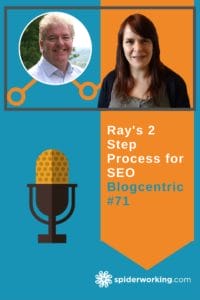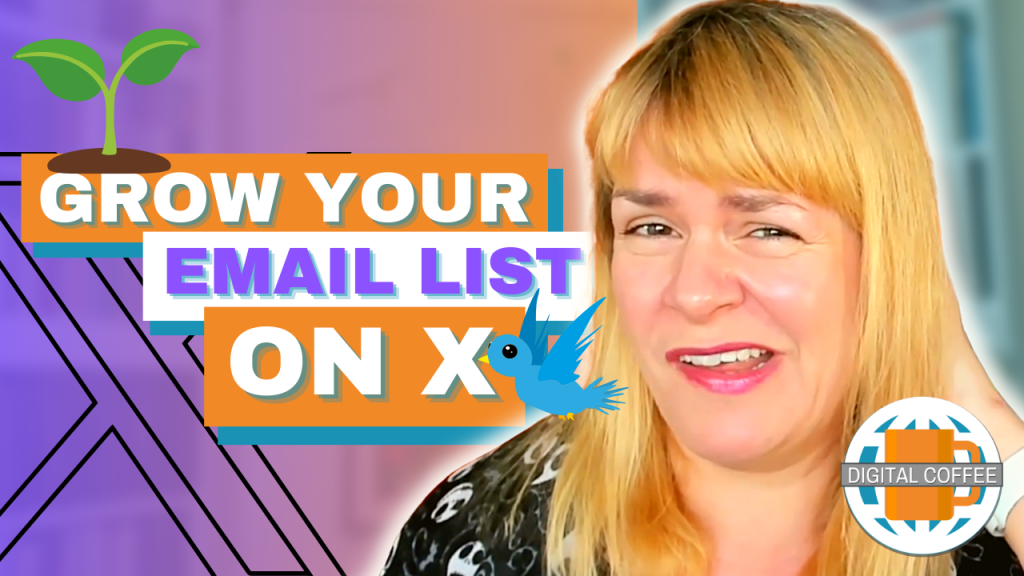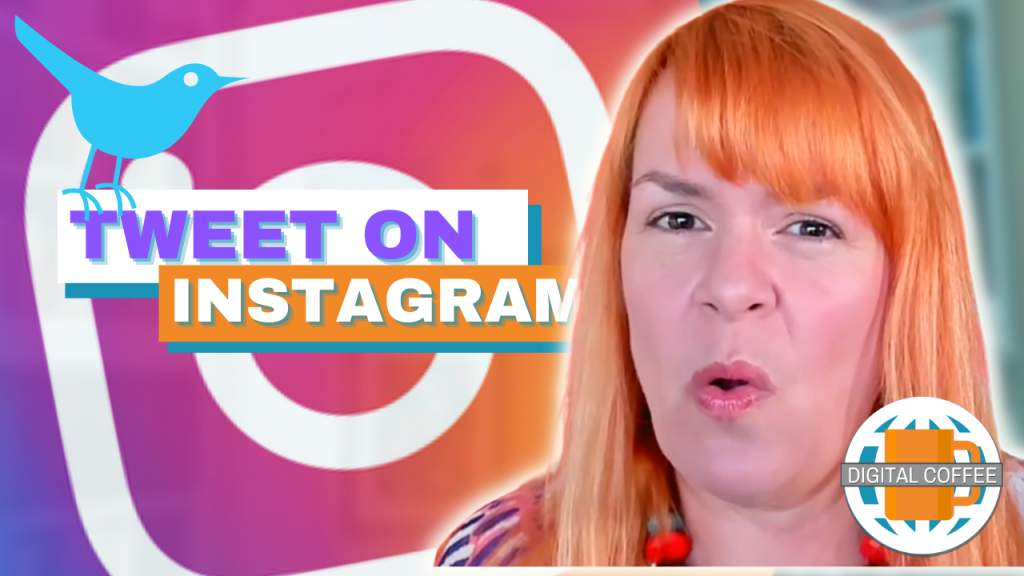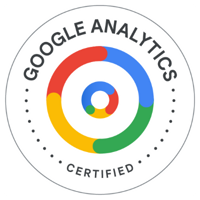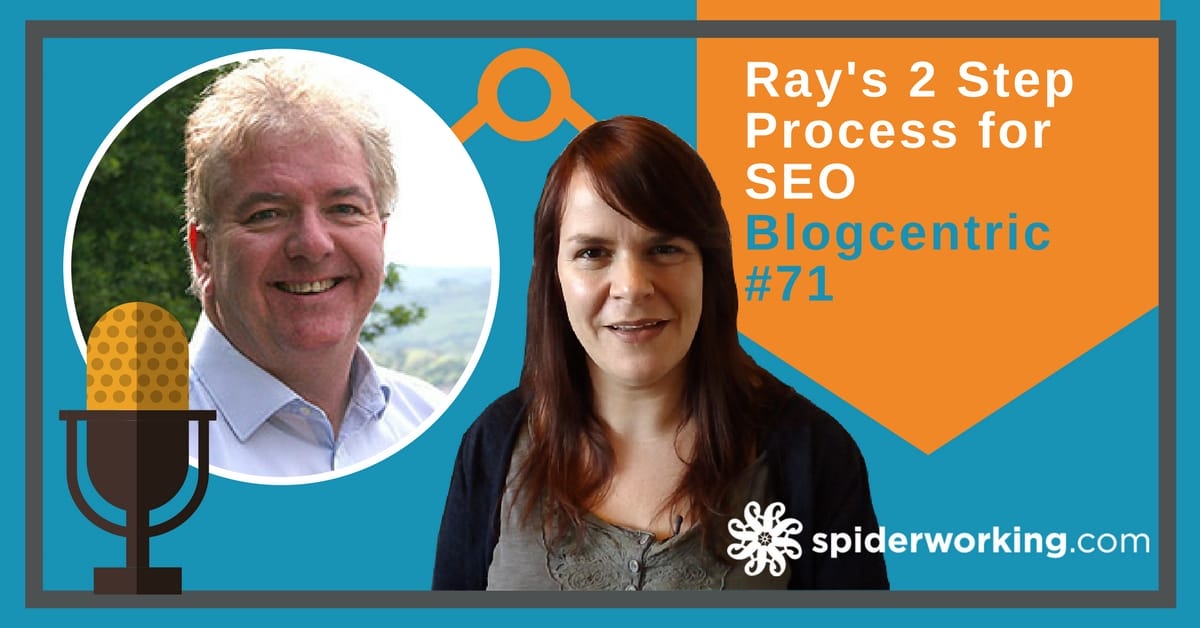
What can you do on your website to appear higher in search rankings? How can you find keywords now that keyword planner is pay to play? What is a long tail keyword anyway?
Ray Field from FreshBananas, an ex-fireman built his first website in 1996. 1996, I’d only been in Ireland a year then and was still writing long letters to my friends and family back home. I didn’t even get my first email address until the following year.
He had a lucky break and his first website secured a big contract for his client. He decided he needed to understand why her site ranked so high to he could apply the principles to other sites. Over an 8 year period taught himself SEO (search engine optimisation). Now SEO is his thing.
I talked to Ray about SEO, how to make sure your page sustains a good ranking on Google, a hack to get around the new restrictive access to keyword planner and a useful process for testing keywords.
Podcast: Play in new window | Download
Subscribe: Apple Podcasts | RSS
Ray has launched an online SEO course that focuses on on-page SEO. I took the course and found it so helpful I became an affiliate. Find out more about it here.
I started by asking Ray why he’d developed his SEO course
About 10 years ago I had the notion of documenting what I do because what I do is different to what most SEOs do. Most SEOs work on links and I don’t because when I was teaching myself SEO it was all about words on pages. I did that small website for that catering company in 96 and there were no links. That fluke, and it was a fluke wasn’t down to links. It was whatever was on the pages was affecting the rankings.
The client didn’t give me copy or images so I read, I went to the library, I became a little bit knowledgeable about catering and I put the words on the pages.
So I put the words on the pages so I thought, it’s got to be the words and then I got to realise that it’s got to be where I’m using those words. So that’s where I’ve stayed. I don’t build links but most SEOs do. And that is one of the big problems with the industry.
I know a lot of other bloggers are getting most of their traffic from Facebook and Twitter. Should we still bother with SEO?
I think we need to bother because we need to look at and try to embrace any marketing channel we possibly can.
If someone is doing well on social media, if someone is earning a fair bit, a well worth wage on social media, then there’s every chance that if they look at another channel to market themselves they can double that.
The other thing with SEO is that if you don’t do anything dodgy in the way that you manipulate Google you can be there (on page one of Google) for years. I’ve worked for a lot of clients and I can still randomly check keywords that I worked on 10 years ago, 12 years ago and they are still on page one. I haven’t touched that site in 10 or 12 years but they’re still there.
A common comment I get from people is that they’re on page 14 for a keyword so they are ranking around 140-160.
They’ll say to me that ‘my page is targeting this keyword’ but when I look it’s not targeting the keyword it’s mentioning the keyword which is different to targeting it. They’re talking about it but incidentally. They’re talking about other things in the copy and on the page that makes Google think that it’s not a dedicated page on any particular keyword.
Google can’t work out what the page is about so it gives it a poor ranking.
Boris is an interior designer who wants to target bulk orders with developers. Where should he start?
What he should do is make some simple checks to determine the popularity of some of his keywords.
His first step would be to go to Google’s keyword planner. You need to have an active AdWords account.
Is there a minimum spend on that AdWords account?
I don’t think there is. What I do is I pick a keyword that is really cheap if someone clicks on my ad and where there’s very little monthly search activity. So my ads might show 30 times a month, I might get two clicks and a click is one pound.
Even if I spend £10 a month Google opens up and gives me accuracy with keyword planner.
The other thing that people can do which is even cheaper again is to make sure that the bid price that they are setting for the bid on the ad positions the ad lower down. The bottom of the page will do.
We’re trying to discourage people from clicking. We’re just running the ad to get the use of Keyword planner.
Boris is in keyword planner now. He’s set up an ad to get full access. What’s next?
First of all, he looks at how many interior designers work in his locality because they’re the guys he’s wanting to get talking to. They can move his carpets, his sofas in much bigger numbers.
If he wants to reach them, and if he’s in London for example, he’s needing these designers not just to see his website but to come in and talk to him. So he needs to look for the interior design companies based in London.
In Keyword planner he types in ‘Interior designers London’. He looks at how many people type that in, he looks at those designers and then he looks at the price Google suggests for the click of a link on an AdWords ad.
Now he creates the ad, uses wording in the ad that is talking to these interior designers. Before he sets the ad live he then creates a page on his website, he frames the copy the way he wants to talk to the designers because it’s not a page that’s going to rank for the keywords.
Once he’s got the page up he’d put a contact form, make sure his address and phone number are on it. Make sure that information is in an easy to see place on the page.
Once he’s created the page and the ad he could be live easily within an hour. That’s a simple initial step that he can do.
This is just the testing phase. If he finds that the ad is working then he needs to SEO that page for those keywords. Get it to rank and then he can stop the ads.
If he’s done it the right way, that page would sit on page one ranking for years.
If Boris identifies a few keywords that work should he bring those all together into one page?
That entirely depends on the relationship between the bunch of keywords he’s got. If he’s got a couple of keywords directly related to ‘interior designers London’ but he’s found a bunch of other keywords that step away from them his success will be dependent on how far away those second set of keywords are to his first bunch.
Just to give an example, not related to Boris.
A client asked me a while back to SEO her website for ‘VAT Calculators’. It’s a simple page with a simple online tool. I SEOd the page for ‘VAT Calculator’ but when I was doing the keyword research I realised that lots of people type in a very wide variety of other keywords and all those keywords are very highly related to the one keyphrase ‘VAT Calculator’.
So I could create a page that ranked for a high number of keywords because they were very highly related. (Just look at this spreadhseet – That’s 293 Keywords Ray found for his client kashflow.com).
If you’ve got that kind of relevance between a wide bunch of keywords then it’s absolutely doable to create a page of copy and target all of those.
In an average Google day it usually sees between 25% and 33% of keywords that have been typed in that have never been typed in before.
When Google sees a keyword it’s never come across before it’s got to attach it to web pages.
So Boris can absolutely target a bunch of keywords but they’ve got to be related. If there are any other keywords people type into Google, directly related to the keywords Boris wants to target, that he hasn’t noticed then Google will make up for that shortfall because it has to attach keywords to particular pages.
Is there any specific trend we should be looking at in 2017 SEO wise?
It’s the same one that comes up every year. Be extremely careful if you are looking for link-based SEO because Google is really hammering that now.
Before you give us your challenge can you explain the term ‘Long Tail Keyword’ because a lot of people won’t know what it means?
Let’s talk about a Dyson vacuum cleaner. If someone is looking to change their vacuum cleaner has packed up and they go looking online for another one.
What we all tend to do at the start is what we call ‘browser-based searches’ where we type in the word ‘Dyson’. We get Dyson popping up at number one because we typed in the brand name. We get tens of thousands of other pages all selling Dyson products. Because we’ve never had a Dyson cleaner before we’re not sure if it’s for us and we’re not sure if we are going to go for a Dyson what model.
We type in Dyson and from that search we spend hours over the period of a week or so looking at Dysons, getting the feel for if we want one that you drag along, the cylinder models, one that’s got a big handle on it or whether you want the battery operated one so you don’t have a cable. We generally look for information based searches.
Once we’re armed with the information, we then change the keywords we type into Google. We no longer type in ‘Dyson’ we go for long tail searches. Long tail searches are far more specific and people are ready to buy, they have the credit card out on the desk.
Long tail keywords for Dyson might be:
- Cheap Dyson DC25 cleaner
- Dyson multi-floor hoover
Then the buyer will pick maybe ‘This site has the best out of the nine on page one of Google’ and does the website look like it’s trustworthy?
There’s a big difference between primary competitive keywords and long tail keywords but the sales are at the long tail end.
Challenge
To get into the swing of long tail keywords. Go do some research and come up with 10 long tail keywords for:
1. Flying lessons
2. Villas Majorca
3. Chandeliers
Find out more about Ray’s excellent online SEO course here (affiliate link). I’ve done it and I learned a lot.
